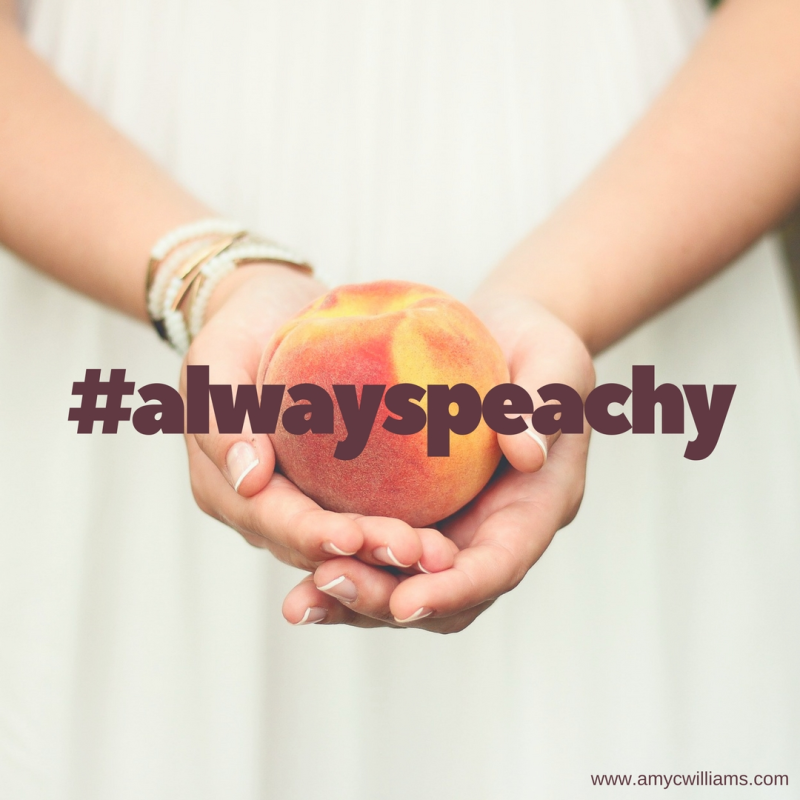It’s March, guys! The third month of 2017 has already begun. How are you doing with your resolutions? Confession time: January was a complete failure for me, and February wasn’t much better.
I had plans to eat right, to exercise regularly, to rest, and to spend time with the Lord. And while I managed some of it some of the time, overall I failed completely. So in March I trying again.
Does anyone else struggle with this? You have the best, most sincere intentions. You make plans and contingencies. You psyche yourself up for the difficult days, and you try to prepare yourself for the inevitable temptation. You do everything you can to convince your traitorous brain that you shouldn’t eat that or that you’ll feel better after you walk those two miles or you’ll get all your work done eventually and a break will be good for you.
But it doesn’t work.
 And then one day you find yourself sacked out on the couch eating M&Ms out of a ten-pound bag while you start in on your fifteenth draft of the same article, and the treadmill makes fun of you silently from its darkened corner of the basement. You feel like the biggest loser on planet Earth.
And then one day you find yourself sacked out on the couch eating M&Ms out of a ten-pound bag while you start in on your fifteenth draft of the same article, and the treadmill makes fun of you silently from its darkened corner of the basement. You feel like the biggest loser on planet Earth.
How does that happen? Well, I’m not sure if it’s the same for anyone else, but I’ve begun to suspect that my approach to goals in general is to blame. I’m a big picture person. I don’t do details very well, and I usually operate under the assumption that no matter what happens, everything will eventually work out.
And since God is in control, that’s true for His people. He’s big enough to work out the details of our lives so that they turn into something beautiful, even if the circumstances are horrible. But that doesn’t absolve us from making wise choices in the mean time.
God gave us brains for a reason.
 So many times, as Christians, I think we focus too much on the war, instead of the battle. Wars are made up of many little battles, some that we win and others that we lose. And, frankly, we lose those little battles because we’re willing to accept defeat. In the grand scheme of the war, we can lose a battle because it won’t affect the eventual outcome.
So many times, as Christians, I think we focus too much on the war, instead of the battle. Wars are made up of many little battles, some that we win and others that we lose. And, frankly, we lose those little battles because we’re willing to accept defeat. In the grand scheme of the war, we can lose a battle because it won’t affect the eventual outcome.
That’s both comforting in one sense and terrifying in another. Yes, it’s great to realize that we’ve already won the war regardless of how many battles we may lose. But does that mean we can just stop fighting?
No! Of course not! (Romans 6:1) Just because Jesus has already accomplished the final goal doesn’t give us the excuse to give up today’s battle. And make no mistake. Today is a battle. This very moment is a battle.
If anyone ever tells you that this life can be free of conflict, struggle, or strife, they’re selling something. Just being honest. Our life here was never meant to be free of those things. As long as we have the Holy Spirit in us, we will be in a constant battle with ourselves and the world around us. But don’t let it discourage you, because Jesus has given us the strength to overcome any challenge (John 16:33).
So how do you win those every-moment battles? How can you overcome the temptation to neglect your physical or spiritual or emotional health?
 Well, just like wars are won through through smaller battles, your daily battles should be conquered with small victories. Instead of focusing on the big picture which seems unconquerable, focus on the choice you have to make right now.
Well, just like wars are won through through smaller battles, your daily battles should be conquered with small victories. Instead of focusing on the big picture which seems unconquerable, focus on the choice you have to make right now.
Should I eat that handful of M&Ms even though I know it will hurt my blood sugar? Should I not take a break from my daily work because I have too much to do? Should I skip my exercise because it’s too much trouble?
None of those are earth-shattering questions. No answer to any of those questions will shake the world off its axis. But for those questions, there is a right answer and a wrong answer for you. No, the world won’t end if you eat the M&Ms, but it’s not the wisest choice you can make.
Living healthy is a daily battle, and the only way you’ll win is seeking wisdom to face the questions. That’s how you win those hourly battles—by making good choices. And you learn how to make good choices from God’s word. (1 Peter 1:13-16)
Ultimately, the choice is yours. You get to decide what you do, what you eat, where you go, how you act. God has given us that freedom. But if you choose a course of action without wisdom, you open yourself up to the consequences.
I don’t know about you, but as much as I love the big picture of life, I can’t win at life on my own strength. I need God’s help. Frankly, I can’t even win in an hourly battle without God’s Spirit (Zechariah 4:6). Nobody can.
But the truth is: God’s given us everything we need to live a victorious life (2 Timothy 1:7).
What choice do you have to make right now? What does God say about it? Have you even asked Him? If you haven’t, there’s your problem. He wants to help. So give Him a chance and see what happens.









 You can’t have half of Jesus. You can’t follow half of Jesus. If you try it, you’ll always be confused and at odds with the Bible. Because Jesus didn’t come to discredit the Bible (
You can’t have half of Jesus. You can’t follow half of Jesus. If you try it, you’ll always be confused and at odds with the Bible. Because Jesus didn’t come to discredit the Bible ( Does that make you uncomfortable? It should. Jesus has always made people uncomfortable, and the day He stops, is the day we’ve truly forgotten who He is. He should always make us think about what we believe and why we believe it. He should always make us realize how unworthy we are, yet how valuable we are to Him.
Does that make you uncomfortable? It should. Jesus has always made people uncomfortable, and the day He stops, is the day we’ve truly forgotten who He is. He should always make us think about what we believe and why we believe it. He should always make us realize how unworthy we are, yet how valuable we are to Him. But how much better would it be if we didn’t let idols put down roots in our lives? Remember, idols only have the power we give them (
But how much better would it be if we didn’t let idols put down roots in our lives? Remember, idols only have the power we give them (


